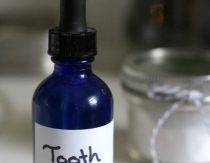
“What Can I Do To Help?”
If you say this to a mama and she looks at you like it’s a trick question, don’t give up. Sometimes asking for what we need is tricky, you know?
After my oldest was born and my midwives crept away for some well-deserved sleep, I remember wondering if they’d noticed that I couldn’t figure out how to burp her. I loved my squishy little girl more than my own breath, but it took some time to feel confident as her mama.
Fortunately, my family and friends surrounded me with support, even when I didn’t know what to ask for. Apparently they had a new mom playbook I didn’t know about, and it went something like this . . .
18 Ways To Help A Mom With A New Baby
Whether your friend is a first-time mama or a seasoned vet on baby #5, here are some ways you can help . . that ACTUALLY help!
1. Run A Couple of Errands
Text me the day before you’re scheduled to drop off a meal and ask if you can pick anything up on your way: toilet paper, bleach-free pads, natural laundry powder, etc.
2. If I Say No . . .
Text me again a few hours before you stop by. I may have remembered something!
3. Give Me An Afternoon
“Come over about 2 in the afternoon. Hold the baby while I have a hot shower, put me to bed with the baby and then fold all the piles of laundry that have been dumped on the couch, beds or in the room corners.” (Gloria Lemay) Or if there’s no laundry to fold, offer to start a load.

4. Capture A Memory
Chances are I barely managed to get into presentable pj’s before you arrived and I’m not thinking about a photo shoot, but as the saying goes, “If you see something beautiful in someone, speak it.”
Whether it’s my beautiful squishy baby sleeping peacefully, or an older child dressed up in a makeshift costume, if you see something lovely ask me if I’d like you to photograph it. Use my phone, or use yours and send it to me later with a quick note telling me what a great job I’m doing. Even if it’s grainy and not at all professional, your photo may become a treasured memory of a time when not many photos are taken. (See Exhibit A here)
5. Spruce Up My Kitchen
Put a load of dishes in the dishwasher and wipe down my countertops.
6. Make Me An Uplifting Room & Linen Spray
Buy a dark amber 4 ounce glass spray bottle, fill it with organic lavender hydrosol (flower water) or organic rose hydrosol, then tie a bit of baker’s twine or ribbon around the nozzle to make it pretty. Although the shelf life will be about 3 months, which is shorter than this homemade air freshener made with essential oils, hydrosols are more gentle and therefore preferred for use in a home with a brand new baby.
Ask me if I’d like you to spritz my pillow. Oh, and make up a bottle for yourself, too. Let’s be happy together!

7. Don’t Assume
. . . that because I am on my second (or third or fourth!) baby that I don’t need help because I “know what I’m is doing.” I need more help! (Thanks Renee Kohley for this idea!)
8. Speaking Of My Older Kids . . .
Please take them to the park to blow bubbles or kick the soccer ball around. Please do not feed them junk – they turn in to gremlins, I promise! Here are some healthy snack ideas they’ll love.
9. Take Kitty For a Walk
Or if you really love me clean out Fido’s litterbox! (What, you didn’t name your dog after a cat and vice versa?)
10. Put A Sign On My Door
If I’ve shared with you that I’m feeling overwhelmed by visitors, offer to print this sign for me and place it on my front door.
11. Express Your Inner Type A
If you’re the organizing type, help me harness “Is there anything I can do to help?” into real-life results. Create a list of chores to put on the fridge so that friends know what is needed. (Thanks for this idea, Katy Scott!)

12. Invite Me To The Circle
Thinking about birth – mine, yours, or the totally different one down the street – is a great way to help me process my experience. Long conversations can be tiring, but I wouldn’t mind if you gifted me a copy of The Birth Next Door for me to read while I’m nursing in the wee hours.
13. Nourish the Nourisher
Organize a Meal Train and share it with my friends and family. Also send me a link that I can give to anyone who asks about bringing a meal.
If my family is on a restricted diet – gluten, dairy, sugar, whatever – make sure that vital info gets listed. When you sign up to bring something, make sure to bring me a nourishing meal like egg drop soup and a huge salad with homemade ranch dressing. Here are 25 quick, healthy meal ideas I’ll love you for!
14. Close The Gap
Yeah, there are 3 states between us and you’re totally off the hook, but how awesome would it be if you made the miles vanish into thin air with a visit from a natural cleaning service or box of organic, fair-trade chocolate drop-shipped from Amazon?
15. Send Me This Article
And also maybe this one.
16. Stop By After All The Hullabaloo
The first two weeks everyone is eager to help, but the adjustment period is much longer. Help around the house, or offer to come with me and hold the baby while I try on nursing bras or pick up some essentials.
17. Leave Quickly
I love you, I REALLY do, but welcoming visitors can be very tiring. So after you’ve done one of these amazing things for me, quietly slip out the door. Did I mention that I love you?
18. Make “Thank You” Taboo
Gifts are not necessary, but if you bring one make sure that it comes with a card that says “Don’t you dare write me a thank you note!”
What are your favorite ways to help a new mom?
Is it something that was helpful to you after having a baby, or maybe something you wish someone had done for you?




